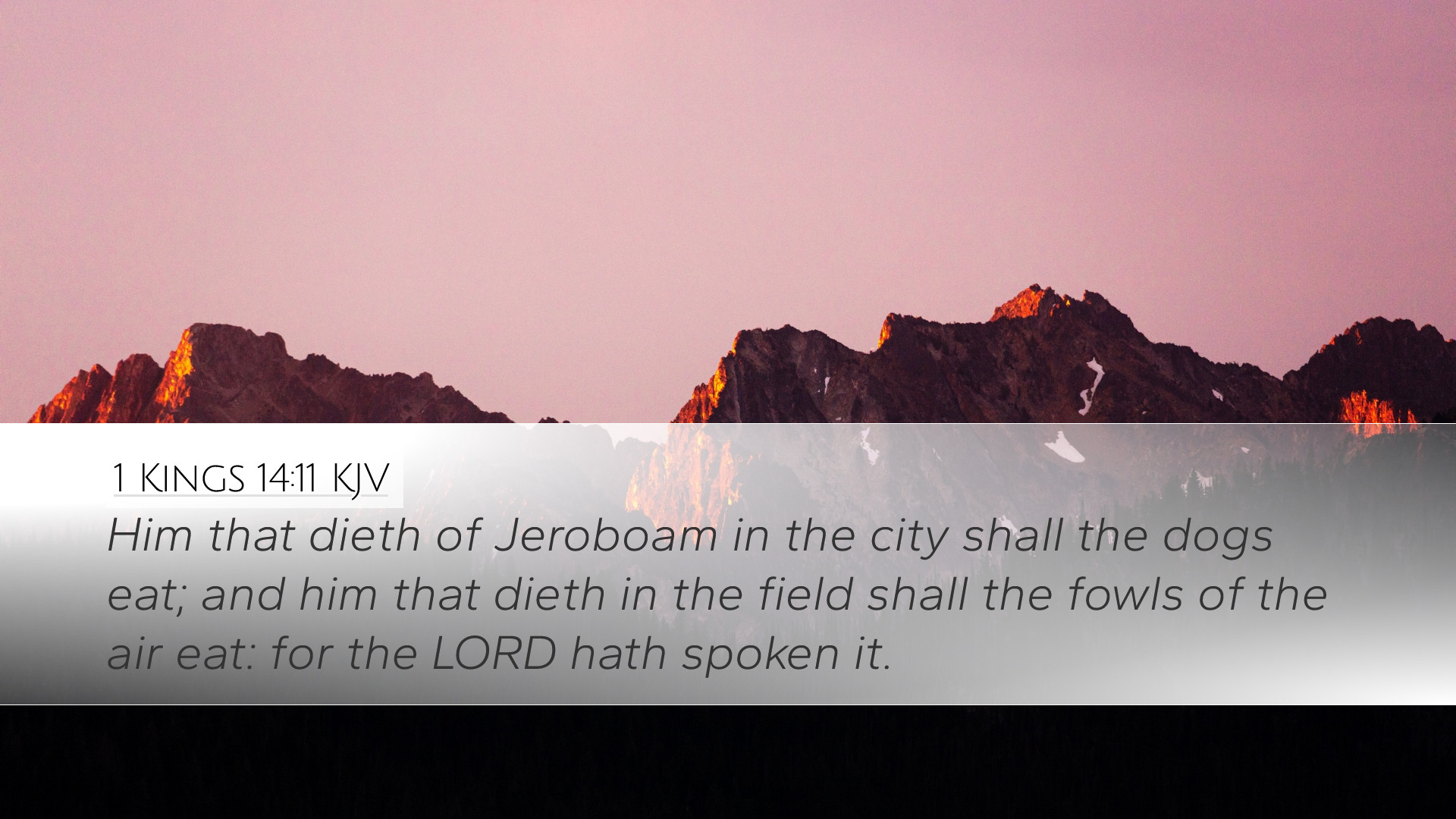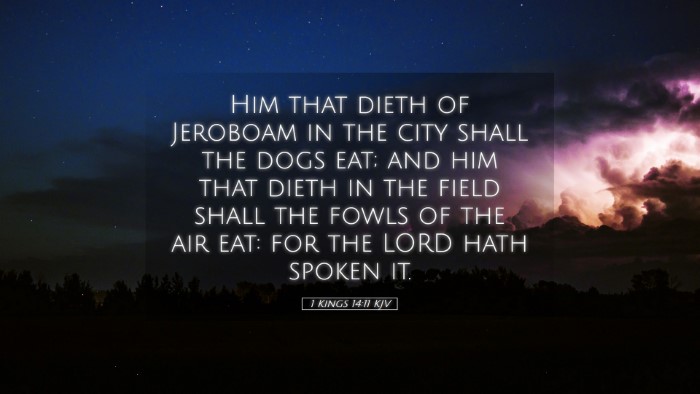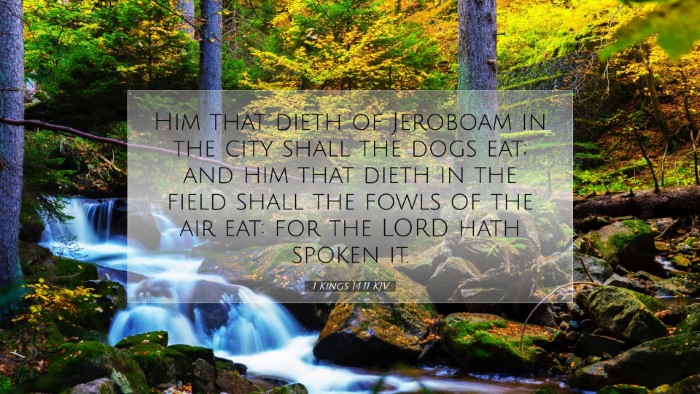Commentary on 1 Kings 14:11
Verse: "Him that dieth of Jeroboam in the city shall the dogs eat; and him that dieth in the fields shall the fowls of the air eat: for the Lord hath spoken it."
Introduction
This verse comes at a pivotal point in the narrative of Jeroboam's reign over Israel. It encapsulates the finality and severity of God’s judgment upon the house of Jeroboam, as well as the implications of idolatry and rebellion against God. Various public domain commentaries shed light on the deeper theological and historical significance of this passage.
The Judgment of Jeroboam
Matthew Henry's Commentary: Henry emphasizes the stark nature of the prophecy against Jeroboam. He notes that the judgment foretold is not just inherent to Jeroboam himself but extends to his entire household. The use of "dogs" and "fowls" symbolizes a complete humiliation and disgrace, as those who die under God's wrath receive no honorable burial, a sign of divine rejection.
Albert Barnes' Notes: Barnes connects this judgment to the broader covenantal context established with Israel. He suggests that the reference to unburied corpses indicates not only the physical death but also the spiritual consequences of leading Israel into sin through idolatry. Jeroboam's transgressions are thus viewed as not only personal failings but national calamities, stirring a call for collective repentance among the people of Israel.
The Symbolism of Dogs and Fowl
Adam Clarke's Commentary: Clarke expands on the imagery in the verse. He posits that the mention of dogs eating the corpses is particularly significant in an ancient Near Eastern context, where dogs were considered unclean animals. The fowls feeding on the slain signify utter lack of dignity in death, reinforcing the idea that the fate of those who oppose God is one of disgrace. Clarke also views the prophetic nature of this statement as a warning to future generations about the seriousness of covenant fidelity.
Theological Implications
This passage serves as a critical reminder of God's justice. Those in positions of leadership, such as Jeroboam, have a heightened responsibility before God. Their actions influence not only their fate but also that of their families and the communities they lead. The fate of Jeroboam's house embodies the concept of corporate responsibility in biblical theology.
- Divine Justice: The inevitability of divine judgment upon unrepentant sin.
- Idolatry and Its Consequences: How leading others into sin incurs grave consequences.
- The Call to Repentance: A warning for all generations to heed God's call away from idolatry.
Historical Context
Matthew Henry: He remarks on the historical backdrop, noting that Jeroboam was the first king of the northern kingdom of Israel after the division from Judah. His establishment of golden calves at Bethel and Dan was a direct affront to the worship of Yahweh, thus laying the groundwork for spiritual decline. Henry underscores how the demise of Jeroboam and his legacy affects the trajectory of Israel's monarchy, leading to further divisions and unrest.
Albert Barnes: Barnes contextualizes the significance of Jeroboam's reign in light of Israel's prophetic tradition. The harsh judgment pronounced here fulfills earlier warnings given to the people about the consequences of forsaking God's covenant. He explains that disobedience leads to destruction not only on a personal level but collectively, affecting the nation's relationship with God.
Conclusion
1 Kings 14:11 serves as a stark reminder of the seriousness with which God views idolatry and rebellion. The comprehensive nature of God's judgment on Jeroboam reflects deep covenantal themes found throughout Scripture. As leaders, both secular and spiritual, examine their actions and the potential consequences for those they lead, this passage stands as a firm admonition to pursue faithfulness to God above all.
Reflections for Today’s Reader
This verse prompts us to reflect on our own lives and the influence we wield in our respective spheres. Are we leading ourselves and others toward faithfulness, or are we, like Jeroboam, setting up forms of idolatry that detract from the true worship of God?
- Personal Integrity: Are our personal lives in line with God's commands?
- Leadership Responsibilities: How do our decisions impact those around us, especially the vulnerable?
- Call to Obedience: Are we vigilant in our call to follow God wholeheartedly?
In conclusion, 1 Kings 14:11 is not merely an ancient decree but a living document full of warnings, teachings, and a clear call to stay true to God's path in the face of temptations and distractions.


